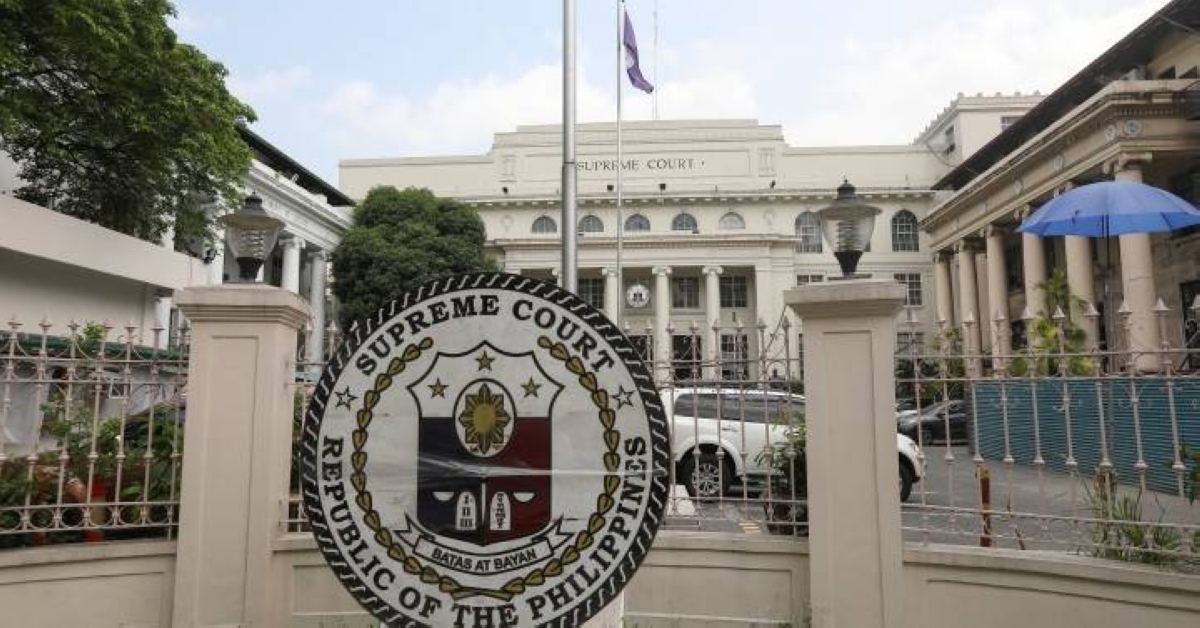The United States Department of Justice has extended its support to the Philippine Supreme Court in the implementation of the Anti-Terrorism Act (ATA) of 2020. In a recent meeting held at the Supreme Court in Ermita, Manila, representatives from the US Department of Justice’s Office of Overseas Prosecutorial Development Assistance and Training (Opdat) expressed their willingness to assist in the preparation of a manual and training for judges regarding the ATA rules, as well as the selection process and composition of the Office of the Judiciary Marshals.
Opdat is an organization dedicated to providing technical assistance to foreign justice sector institutions and law enforcement personnel. Their aim is to enhance their capabilities in combating terrorism, trafficking in persons, organized crime, corruption, and financial crimes, and to foster effective partnerships with the Department of Justice. The courtesy call from Opdat representatives coincided with a meeting between Supreme Court officials and United Nations Special Rapporteur Irene Khan, where the controversial ATA was also discussed.
During these discussions, Chief Justice Alexander Gesmundo emphasized the importance of the rules promulgated to ensure that judges handle anti-terrorism cases with utmost care, protecting the rights of individuals involved. The Rules on the ATA and Related Laws, which came into effect on January 15, 2021, cover various aspects such as detentions without judicial warrants of arrest, surveillance orders, freeze orders, travel restrictions, designations, proscriptions, and other court issuances related to the implementation of the ATA and its associated laws.
The collaboration between the United States Department of Justice and the Philippine Supreme Court signifies the shared commitment to combatting terrorism and upholding the rule of law. By providing assistance in the form of a manual and training, the US Department of Justice aims to contribute to the effective implementation of the ATA in the Philippines. This collaboration also highlights the importance of international cooperation in addressing transnational threats and ensuring the safety and security of nations.
The ATA has been a subject of debate and scrutiny, both domestically and internationally. While it is crucial to address security concerns and protect citizens from acts of terrorism, it is equally important to ensure that the rights and liberties of individuals are safeguarded. The involvement of the United States Department of Justice in assisting the Philippine Supreme Court demonstrates the commitment to strike a balance between security measures and the protection of human rights.
The collaboration between these two entities also provides an opportunity for knowledge-sharing and the exchange of best practices. The United States has a wealth of experience in dealing with terrorism-related cases, and their expertise can greatly benefit the Philippine judiciary. By contextualizing potentially unclear parts of the ATA to an international audience, the collaboration aims to bridge any gaps in understanding and ensure a comprehensive and effective implementation of the law.
In conclusion, the United States Department of Justice has offered its assistance to the Philippine Supreme Court in the implementation of the Anti-Terrorism Act. This collaboration reflects the commitment to combat terrorism while upholding the rule of law and protecting individual rights. By providing a manual and training, the United States aims to enhance the capabilities of the Philippine judiciary in handling anti-terrorism cases. This collaboration serves as an avenue for knowledge-sharing and promotes international cooperation in addressing transnational threats.







